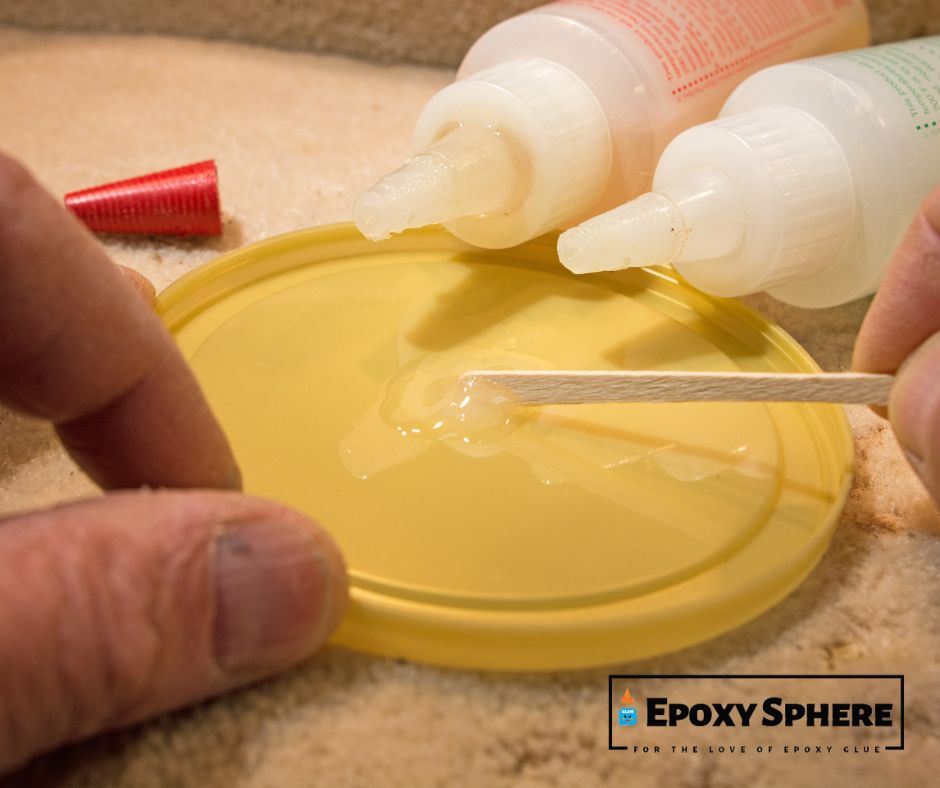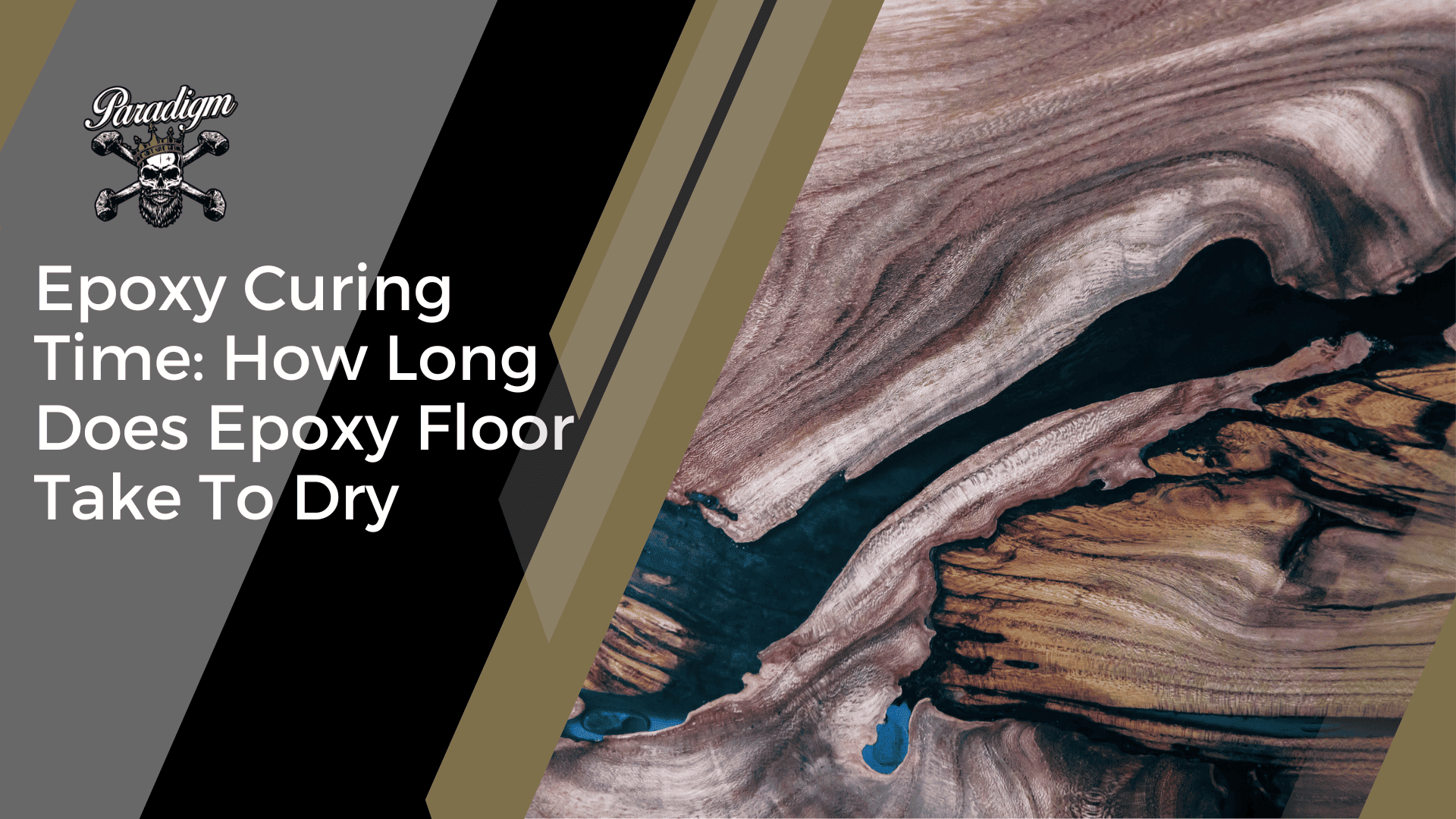As someone who’s recently ventured into the world of home improvement, I found myself eagerly embarking on the task of epoxy flooring for my garage. While the process seemed straightforward at first, navigating the intricate details of epoxy floor drying time proved to be a crucial challenge.

How Long Does Epoxy Floor Take To Dry
My initial excitement turned into a whirlwind of questions: How long before I could walk on the floor? Could I park my car on it? When would it fully cure? Determined to master the art of epoxy flooring, I delved into extensive research, consulting expert insights and unraveling the complexities surrounding epoxy floor drying time.
Understanding Epoxy Flooring
Epoxy flooring, a fusion of resin and hardener, has gained immense popularity as a durable and aesthetically pleasing surface for various applications. Known for its resistance to wear, chemicals, and moisture, epoxy is commonly found in garages, warehouses, and industrial settings.
However, the drying time of epoxy flooring is a critical factor that often raises questions among homeowners and contractors alike. Understanding the different stages of drying and cure times ensures a successful epoxy floor installation, guaranteeing longevity and optimal performance.
Stages of Epoxy Floor Drying
The epoxy floor drying process involves three distinct stages:
- Gel Time: During this initial phase, the epoxy mixture thickens, losing its liquid properties and becoming more viscous. The gel time usually takes place within 20-60 minutes after application.
- Set Time: As the gelation process continues, the epoxy transitions into a solid state, gaining strength and firmness. Set time generally occurs within 2-6 hours, allowing for cautious foot traffic on the surface.
- Cure Time: This final stage represents the complete hardening and adhesion of the epoxy floor. Achieving its maximum durability, the floor is fully cured within 7-14 days, depending on the specific epoxy product and environmental conditions.
Factors Affecting Drying Time
Multiple elements influence the drying time of an epoxy floor, including:
- Epoxy Type: Different epoxy formulations have varying drying times. Water-based epoxy, for example, dries faster than solvent-based epoxy.
- Temperature: Warmer temperatures accelerate the drying process, while colder temperatures can prolong it significantly.
- Humidity: High humidity levels can slow down drying time, as moisture interferes with the curing process.
- Ventilation: Adequate ventilation ensures proper air circulation, facilitating the evaporation of solvents and promoting faster drying.
- Thickness of Application: Thicker epoxy coatings naturally take longer to dry than thinner ones.
- Maintain a Controlled Environment: Keep the temperature between 70-80°F (21-27°C) and humidity levels below 50% during application and drying.
- Ensure Proper Ventilation: Open windows and doors or use fans to facilitate air circulation and remove solvent fumes.
- Avoid Over-Application: Apply the epoxy in recommended thicknesses to prevent extended drying time.
- Use a Dehumidifier: In high-humidity environments, consider using a dehumidifier to reduce moisture levels and enhance drying.
- Protect the Floor: Cover the freshly applied epoxy with plastic sheeting to prevent dust and debris from adhering to the surface.
- Q: How soon can I walk on my epoxy floor?
A: Generally, you can walk on the epoxy floor after the set time, which is typically within 2-6 hours. However, allow ample time for the floor to fully cure before subjecting it to heavy traffic. - Q: When can I park my car on the epoxy floor?
A: It’s advisable to wait for the complete cure time of 7-14 days before parking a vehicle on the epoxy floor. This ensures the floor’s maximum strength and durability. - Q: How long does it take for epoxy floor to cure completely?
A: The complete cure time for epoxy flooring ranges from 7 to 14 days, depending on the product and environmental conditions. During this period, the epoxy reaches its optimal hardness and resistance. - Q: Can I speed up the drying time of epoxy floor?
A: While it’s not recommended to alter the natural drying process, you can optimize conditions by maintaining a controlled environment and ensuring adequate ventilation. - Q: What happens if the epoxy floor does not dry properly?
A: Improper drying can lead to reduced durability, adhesion problems, and surface imperfections. It’s crucial to follow recommended drying guidelines and take precautions to prevent moisture or temperature fluctuations during the curing process.
Expert Tips for Optimal Drying
To achieve the best results and ensure a long-lasting epoxy floor, follow these expert recommendations:
FAQs on Epoxy Floor Drying
To provide comprehensive information, let’s address some frequently asked questions about epoxy floor drying:
Conclusion
Understanding the drying time of epoxy flooring is essential for a successful installation. By carefully considering the different factors that influence drying, such as epoxy type, temperature, and ventilation, you can ensure your epoxy floor achieves its optimal performance and longevity. Follow the expert tips provided in this guide and refer to the FAQs for additional guidance.
Remember, the journey of epoxy flooring doesn’t end with its application. Proper maintenance and care will preserve its beauty and functionality for years to come. Let the knowledge you’ve gained empower you in creating a durable and visually stunning epoxy floor that will enhance your space for years to come.
Are you interested in learning more about epoxy flooring or have any specific questions?
How Long Does Epoxy Floor Take To Dry

Image: paradigmconcretefl.com










